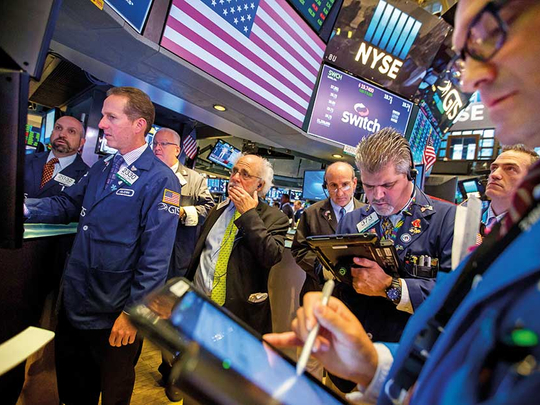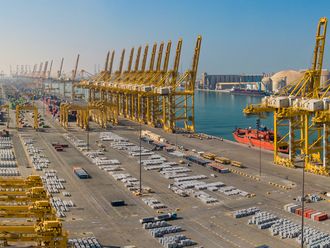
Dubai: Stronger than expected earnings from companies in the United States may keep record-breaking markets going this week.
The S&P 500 index hit a record high on Friday at 2,557.65, closing 0.09 per cent higher at 2,553.17. The index has been on a record breaking spree on the back of higher growth, and expectations of tax cut from the Trump administration along with a boost in infrastructure spending.
The index has gained more than 14 per cent so far in the year, and has yielded positive returns in the last 10 months.
The Dow Jones Industrial Average reached another peak of 22,905.33, before closing at 22,871.72, up 0.13 per cent. The index is up more than 15 per cent since January.
This positive momentum was despite a flurry of disappointments from market leaders like JP Morgan and Citigroup, and this week Wall Street will see results from Goldman Sachs, Republic Vancorp, and industrials such as General Electric and pharma companies like Johnson & Johnson, and Abbott Labs.
Consumer confidence
“Expectations of strong corporate earnings to be released over the next few weeks and improved consumer confidence continue to support equities markets,” Vaqar Zuberi, Head of Hedge Funds at Mirabaud Asset Management told Gulf News.
With all the positive news already factored in, analysts expected the indices to stay in a range.
“Equities markets are expected to trade range bound over the next few weeks as third quarter corporate earnings are released. These will remain the primary driver for the direction of equities markets, which remain susceptible to move to the downside from any disappointment,” Zuberi said.
The possible risks to the rally are many, but they are currently being ignored by traders.
Aberdeen Standard Life feels that the biggest risk to this rally could be a reversal of easy money policy, that would mean taking away $2 trillion (Dh7.34 trillion) from the market or $22 trillion debt problem in China.
“China deleveraging and QE [Quantitative Easing] reversal are the biggest risks. The Fed, the European Central Bank and Bank of Japan have pumped in $2 trillion dollars through QE programs. The $2 trillion of QE flows will turn to zero, and that’s one thing that’s making me much more cautious on equities,” Craig Mackenzie, a Senior Investment Strategist with Aberdeen Standard told Gulf News.
China has given loans worth $22 trillion, which is equal to the size of the banking system.
“The projects are not financially viable. If you don’t get ROI [return on investment] than its bad debt,” Mackenzie said, adding the bad debts had a potential to cause further slowdown in China, and also the world because a third of global growth comes from the Asia’s second largest economy.
“A slowdown in the financial system could trigger the end of the party for equities,” he added.












